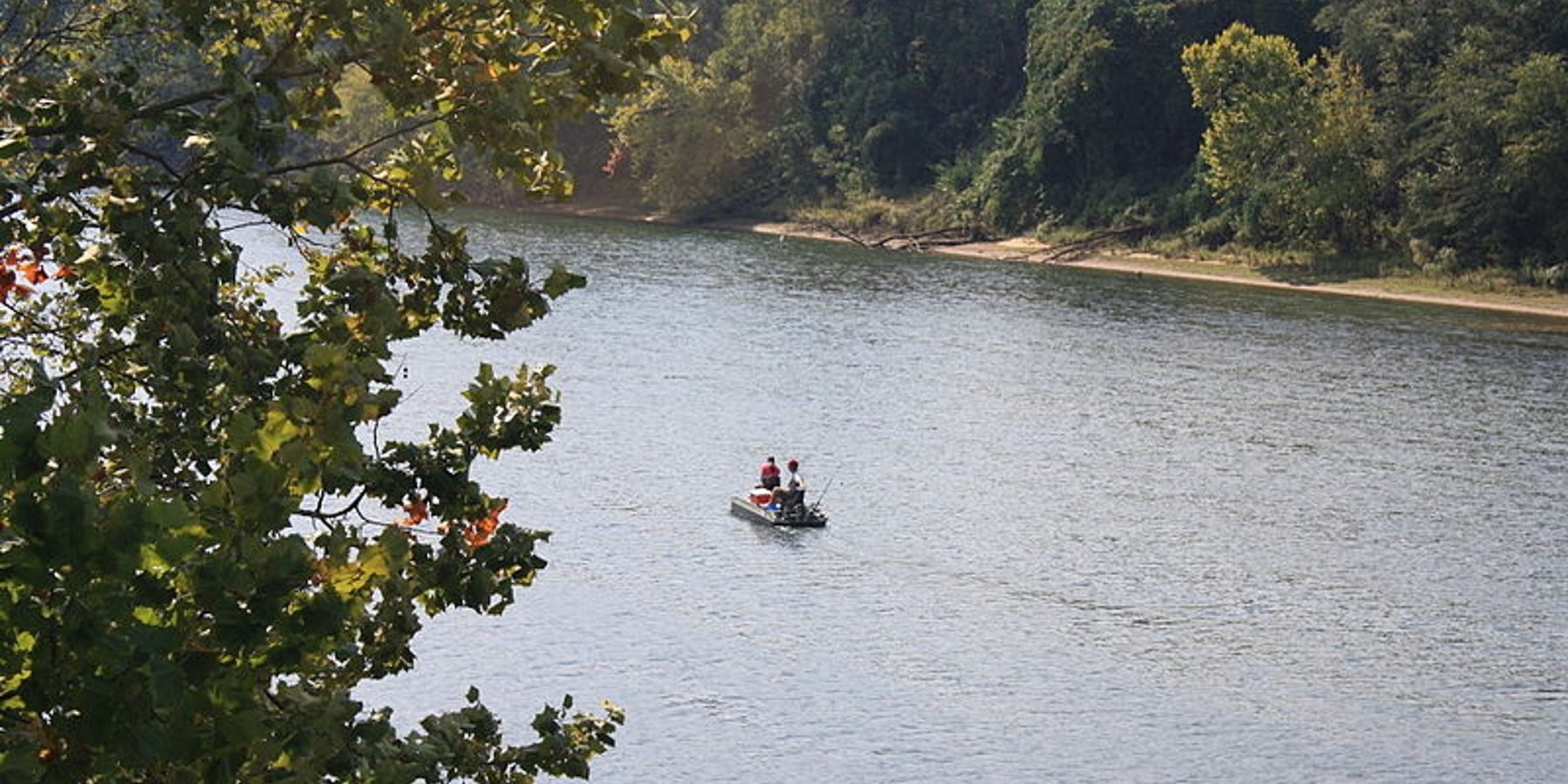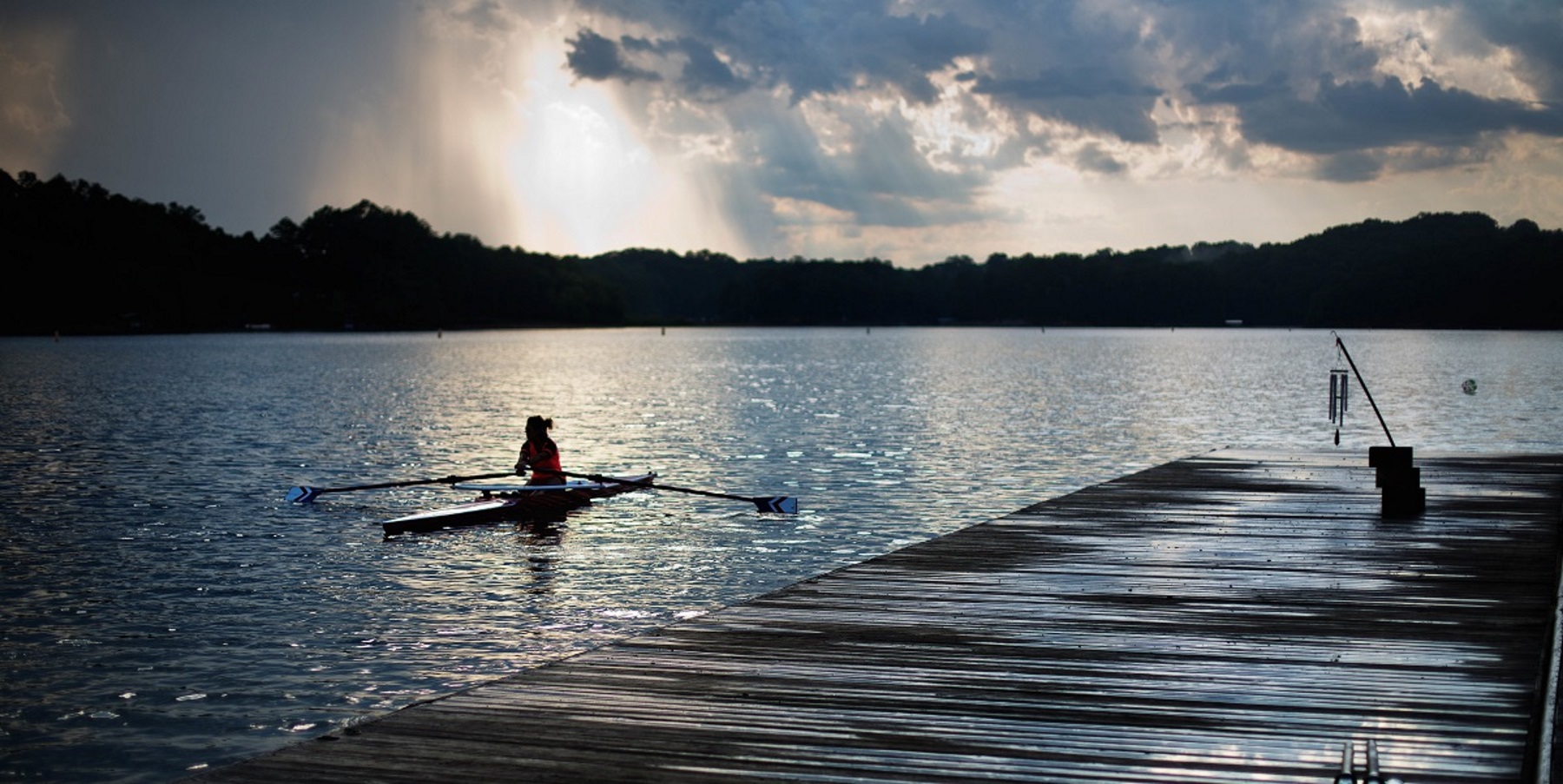The Supreme Court Case Is Over, But Resolving Georgia’s Water Fights Still Won’t Be Easy

Earlier this year, the Supreme Court sided with Georgia, denying Florida’s request to limit water use here. But there are other cases still out there, and litigation isn’t the only challenge for Atlanta’s water supply.
Deutschlandreform / Wikimedia commons
Before his career in IT, and his years of work on Georgia water issues, Wilton Rooks was involved in NASA’s Apollo Space Program.
During his time in the Air Force, he was assigned to NASA facilities, where he worked on flight trajectories to the moon and later on the F1 engine that helped launch the Apollo missions.
“It was going through a turbulent time,” he said. “It was exploding, which made it hard to recruit astronauts.”
More recently, Rooks has been involved in another hard problem: The ongoing disputes between Florida, Georgia and Alabama over water.
The U.S. Supreme Court has decided one case in the fights between Georgia and its neighbors over water. Earlier this year, the high court sided with Georgia, denying Florida’s request to limit water use here.
But there are other cases still out there, and litigation isn’t the only challenge for Atlanta’s water supply.
Rooks is the outreach director for the Georgia Water Resources Institute at Georgia Tech. He’s also served as the director of the Lake Lanier Association and was one of the founders of a group working to suggest solutions to the so-called water wars.
That group, called the Apalachicola-Chattahoochee-Flint Stakeholders released a plan they thought could work for sharing the water between the states without more lawsuits.
“There was a huge level of optimism among the group,” Rooks said.
But the plan was released in 2015, which was bad timing.
The Supreme Court case was already underway. Rooks, who’s no longer a member of the Stakeholders group, said there was little interest from politicians in consensus-based ideas at the time, while they were fighting each other in court.
Now that the case is over, Chris Mangianello, water policy director at Chattahoochee Riverkeeper and current member of the ACF Stakeholders, said the plan is worth revisiting.
“I mean, I do think it can fix things,” he said. “We continue to point to the ACF Stakeholders and the sustainable water management plan as a possible roadmap forward.”
There are a bunch of recommendations in the plan, involving tweaks and changes and investments along the rivers from Lake Lanier, to Georgia’s border with Alabama, all the way down through the Florida panhandle.
>>>More about the ACF Stakeholders plan with views from Alabama, Florida and Georgia
The idea pitched by the Stakeholders was that all of those things would need to be implemented, but Mangianello said he thinks there are some low-hanging fruit options.
“Things in there that can kind of get pulled out piece by piece and you can start working on them,” he said.

For instance, commissioning a study on raising the level of Lake Lanier. Not actually raising it. Just studying raising it.
“If it came back and said, it’s not feasible, then that’s just off the table, like, we stop talking about it,” he said. “On the other hand, if it comes back and says it is feasible, well, then we have a piece of the puzzle to kind of start thinking about moving forward.”
Toward the end of his term, Georgia’s previous governor, Nathan Deal, said that he had come close to an agreement with the other states, before the Supreme Court case. He said he regretted not being able to work things out.
Even now that the Supreme Court case is over, there are still two other lawsuits in lower courts involving water shared by Georgia and its neighbors.
Georgia’s attorney general’s office declined an interview for this story.
Whatever happens in the future, though, Katherine Zitsch, director of the Metropolitan North Georgia Water Planning District, said Atlanta will keep working to save water.
“No matter the outcome of litigation, we have to keep conserving because of our limited water supply,” she said.
Water agencies in metro Atlanta have implemented things like toilet rebates to encourage people to get more efficient models. And they price water so that the more you use, the more you pay, like the opposite of a bulk discount.
“Which really sends the price signal to customers that water is precious,” she said.
Zitsch said even as metro Atlanta’s population has grown, the amount of water it withdraws has gone down.
And that’s important not just because of the lawsuit, but also because of droughts and climate change. Climate will be a big factor going forward for any proposed solution, Rooks said.
“Droughts are going to be more frequent,” he said. “They’re going to be more severe.”
Rooks said the plan the Stakeholders group put forward isn’t necessarily the answer, but it at least could serve as a starting point.
And, he said, now that the Supreme Court case is over, he feels optimistic again.
“There is a renewed opportunity for dealing with the issue differently, and perhaps maybe making some progress,” he said.
Rooks acknowledges finding a solution to the decadeslong water war is tough. In fact, he said, working on trajectories to land people on the moon in the 1960s was less complicated.
“The equations were the equations, and they did what they did,” he said. “It was not a matter of people’s opinions about them.”
He said with water it’s going to require politicians having the resolve to work it out. Even if it’s hard.








